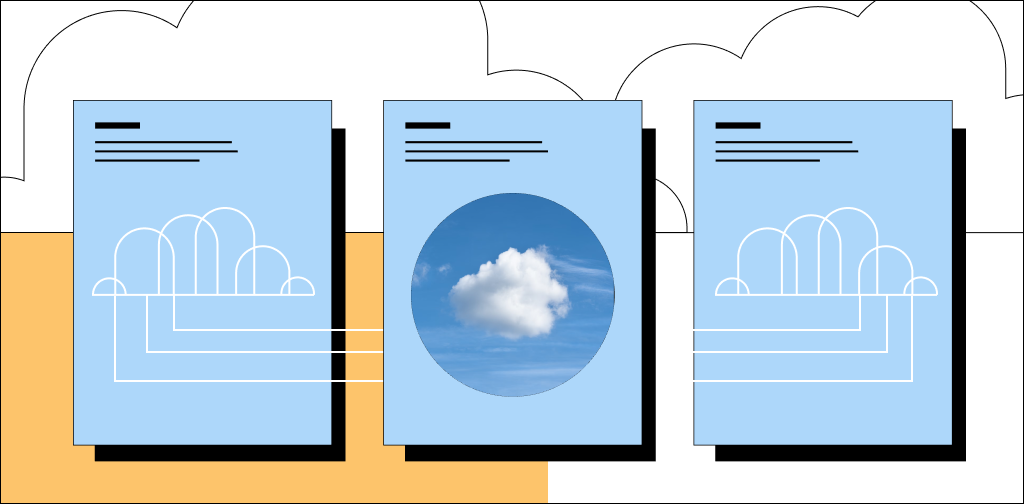Today’s technology landscape would be very different without cloud-based servers since they enable people and businesses to access computing resources remotely, on demand, and with absolute ease and speed.
But how do they help businesses, and are they suitable for your company? We’ll explore that and more in this guide to cloud-based servers.
Here’s what we’ll cover:
- What is a cloud-based server?
- Cloud-based servers vs. traditional servers
- Types of cloud-based servers
- Why should you opt for cloud-based servers?
- Factors to consider before deciding on a cloud provider
- Final thoughts: Cloud-based servers — what they are and how they work
What is a cloud-based server?
A cloud-based server is a virtual server you create by virtualizing physical servers. Users can access it via the internet and use its resources, such as processing power, disk space, and network bandwidth, on demand.
Why opt for cloud servers when they perform the same functions as traditional servers? The answer lies in the cloud. You can benefit from cloud servers remotely over a network. You no longer need to necessarily tie your services to a physical, on-site location as with a traditional server.
Cloud hosting as flexible as your business
Get scalability, security, performance, and ease of use
In other words, as long as the servers have an internet connection and access to the cloud computing platform on which they run, users can access cloud servers remotely from anywhere.
However, one thing to note is that while you can use cloud servers to host websites, they are not the same as a web hosting server.
Web servers are typically designed to handle HTTP requests. On the other hand, you can use cloud-based servers for much more than web hosting — such as data processing, file storage (cloud storage), and application hosting.
How do cloud-based servers work?
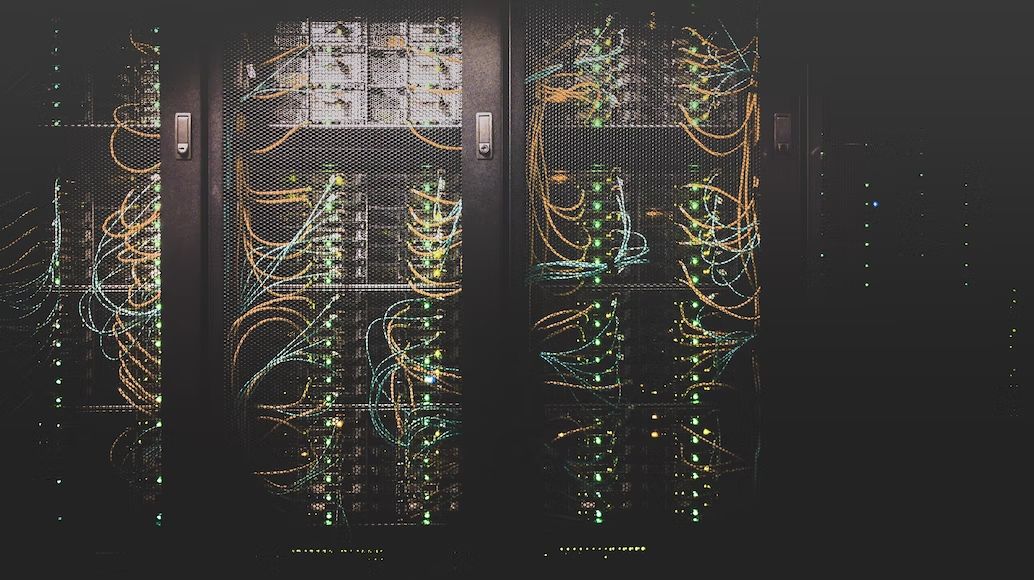
Cloud-based servers are built upon virtualization technology. Several physical servers are combined into one large pool of computing resources and are connected to create a powerful and flexible network.
As a result, users gain access to a broad range of computing resources, such as processing power, memory, and storage, all without a physical server.
A hypervisor executes, manages, and monitors this virtualization process. It's a piece of software that ensures that resources are efficiently allocated and that the system is functioning as it should.
Cloud-based servers vs. traditional servers

Cloud servers offer several advantages over traditional servers.
Scalability
Cloud-based servers are highly scalable. They let businesses add or remove resources — such as processing power and data storage — on the fly. In contrast, traditional servers are limited by how much physical hardware they have available and require manual resource allocation and management.
Cost-effective
Due to their nature, cloud-based servers are often priced on a pay-as-you-go basis. You only pay for the resources you use.
If your business has unpredictable demand, this pricing model comes in handy. You can scale server resources up or down according to your business needs and only pay for the resources you consume.
In contrast, traditional servers require significant upfront investment and lack flexibility. If you get a server rated for peak demand, you end up with underutilized resources. If you get a server rated for regular demand, you’re unable to meet the peak workload.
Reliability
Cloud-based servers offer more redundancy and reliability than traditional servers as they are hosted across multiple data centers and have built-in failover mechanisms against downtime. These mechanisms automatically switch to a secondary database if the primary system fails or is shut down for any reason.
Moreover, because cloud servers have to defend against a wide range of possible online threats and attacks, they often have more advanced security features and monitoring tools than traditional servers.
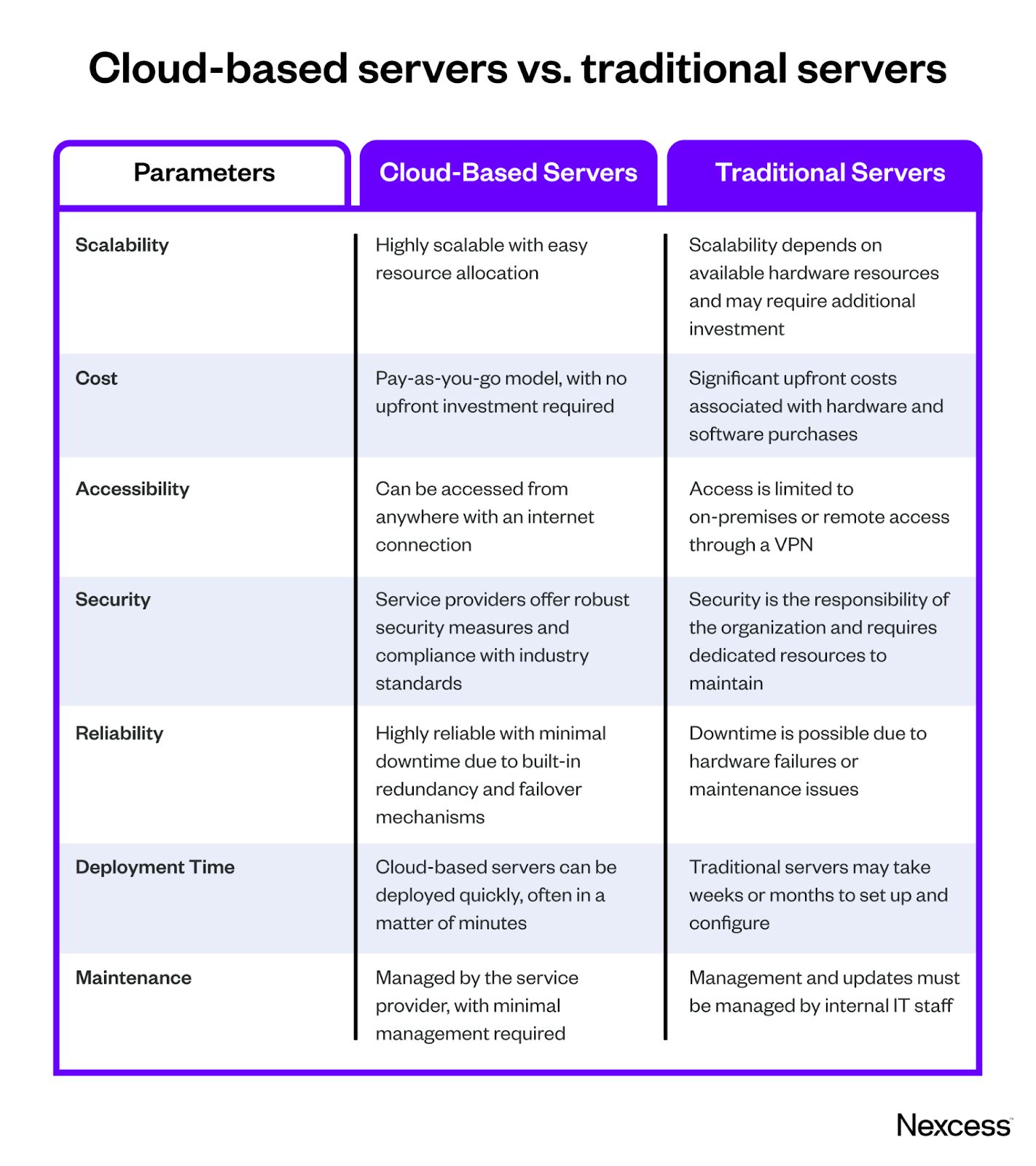
Types of cloud-based servers
As mentioned above, cloud-based servers differ from traditional servers. However, the differences can be small or big depending on the type of cloud-based server. For instance, on-premises private cloud might appear almost identical to traditional servers.
Let’s discuss the different types of cloud-based servers.
Private servers
A private server or private cloud refers to a cloud-based server dedicated to a single user (or organization). You might host it in your company’s data center, at a third-party colocation facility, or with a private cloud solutions provider.
As the server resources are dedicated to you, this configuration is also called a bare-metal server.
Private clouds offer greater control and security at the cost of ease of use since organizations are typically responsible for managing and maintaining everything, similar to traditional servers. As a result, this configuration requires a higher level of IT expertise.
There are three main types of private cloud infrastructure:
- On-premises private cloud: This is the most expensive and labor-intensive type of private cloud, as you have to acquire, maintain, and upgrade in-house resources at a data center owned by your organization.
- Virtual private cloud: Virtual private cloud (VPC) provides users with dedicated virtual resources within a shared public cloud infrastructure by letting them create their own private network within a public cloud environment. You get the convenience and scalability of a public cloud plus the additional control and security of conventional servers.
- Managed private cloud: In a managed private cloud, a third party provides, maintains, and supports the private cloud on your behalf in their data centers. It offers a middle ground between on-premises and virtual private clouds.
Public servers
Public servers are cloud-based servers a third-party provider manages and delivers on demand to multiple users and organizations over the internet. It eliminates the need for these users to operate their own data centers.
Organizations that deal with less-sensitive data or produce apps with unpredictable demand may opt for public clouds since they often operate on a pay-as-you-go model.
Popular third-party, public cloud providers include Amazon Web Services (AWS), Microsoft Azure, Nexcess Cloud, and Google Cloud Platform.
Hybrid servers
Also known as multi-cloud environments, hybrid clouds combine private and public clouds and offer the best of both worlds — the security and control of private cloud servers and the scalability and flexibility of public cloud servers.
This makes them ideal for organizations that require high levels of control and security for sensitive data but also need to use public cloud services for scalability and flexibility.
Why should you opt for cloud-based servers?
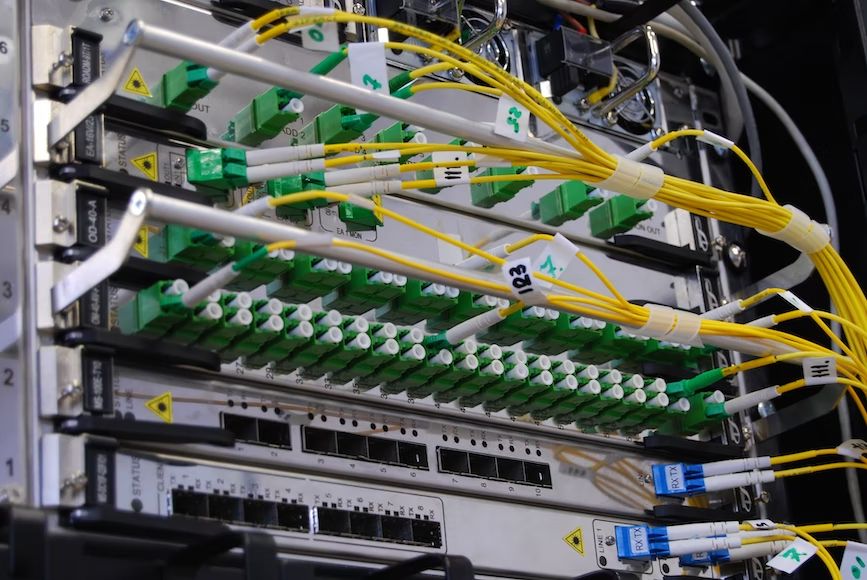
From individuals and small businesses to large-scale enterprises, cloud-based servers can offer many benefits.
- Cost-effectiveness: Cloud servers often use a pay-as-you-go pricing model and do not require an upfront investment. Businesses can use them to save costs and improve their margins while maintaining access to enterprise-level computing resources at all stages of growth.
- Improved operational efficiency: With cloud servers, businesses can improve their operational efficiency by automating routine tasks, freeing staff to focus on more strategic initiatives.
- Enhanced agility and collaboration: Cloud-based servers let businesses spin up resources for new products and services at the drop of a hat. Team members can share files and access resources from any location. This enhanced collaboration makes cloud-based servers ideal for remote workers and distributed teams.
- Improved data security: Cloud-based servers offer advanced data security to safeguard against myriad online threats. They also protect against data center risk factors via disaster recovery, backup solutions, and redundancy.
- Sustainability: Cloud-based servers can provide better environmental sustainability by reducing energy consumption and carbon emissions as they eliminate the need for overprovisioning.
Factors to consider before deciding on a cloud provider
While cloud servers offer several benefits, you should do the due research before deciding on a cloud service provider since it’ll manage a hefty portion of your business.
Data security
Data security is important for modern businesses since a data leak affects their relations with their customers and clients.
But malicious agents pose a constant threat of data leaks. A 2022 ITRC report on data breaches found that 1,802 cases occurred in 2022 in the U.S. alone, affecting more than 422 million individuals.
To ensure your customers don’t join those ranks, review the cloud hosting provider’s security measures extensively and see if they offer industry-standard security.
For instance, Nexcess cloud hosting plans include enterprise-level security, with Level 1 PCI compliance, SOC 2 data centers, daily backups (archived for 30 days), regular firewall updates, and 24/7 server monitoring to keep your data safe.
Level of control
Many businesses feel that they’ll lose control over server configuration, maintenance, and backups when it comes to cloud-based solutions. This is especially problematic for organizations with specific needs and regulatory requirements.
However, this is far from true if the cloud provider offers multiple configuration options.
For instance, Nexcess offers some of the most flexible cloud solutions available, with round-the-clock monitoring and daily backups.
Legal compliance
If you manage an ecommerce business or offer services related to health care, you may have to comply with additional laws. Similarly, specific laws apply to you if you manage customer data in specific states and countries.
If that’s a concern for you, you have to ensure that the cloud provider you trust complies with the respective regulations as well. For instance, if you’re in the ecommerce business, you may need a cloud provider that complies with the payment card industry data security standard (PCI DSS).
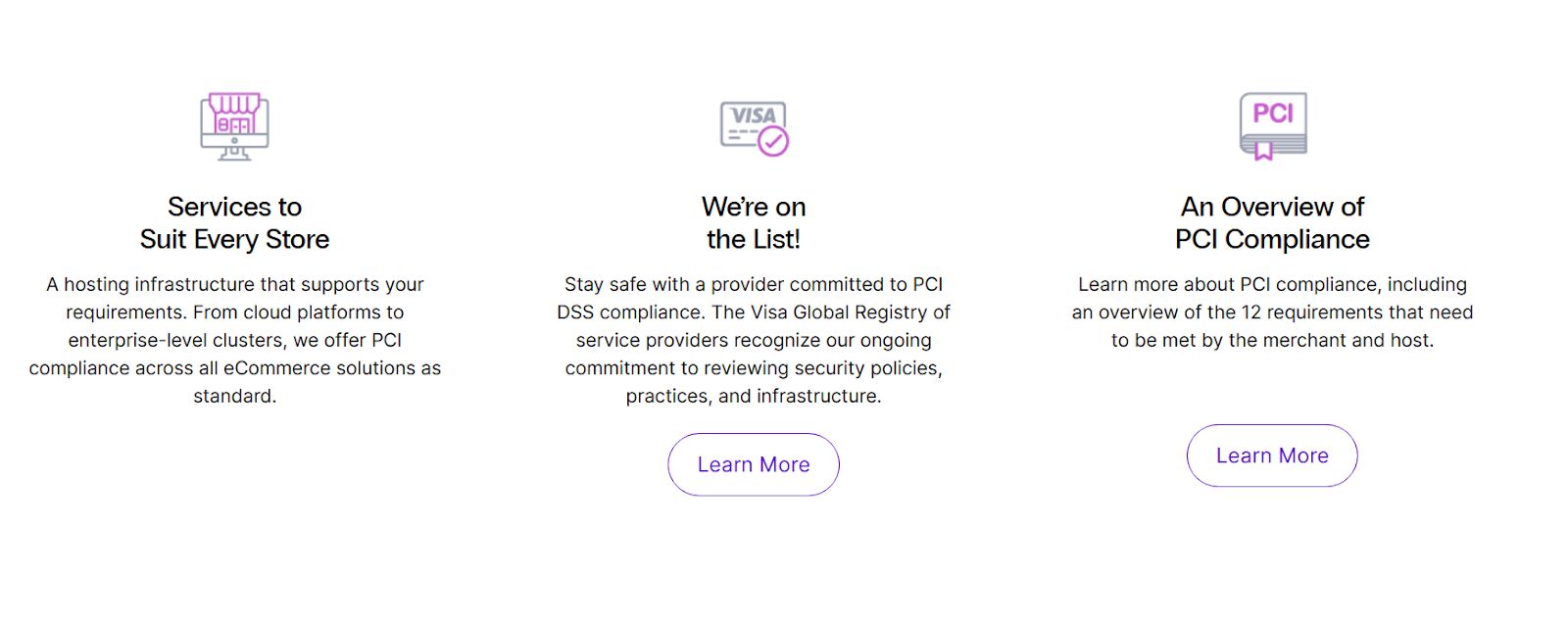
All Nexcess hosting solutions come with PCI DSS. We also undergo SOC-1 type II and SOC-2 type II assessments yearly to ensure we comply with SSAE-18 standards. And on top of this, we have a full-time, dedicated compliance team.
Final thoughts: Cloud-based servers — what they are and how they work
Cloud-based servers provide scalability, flexibility, and reliability — everything a modern internet-based business needs — at an affordable price. You can use them to host applications, store data, or run your ecommerce website.
But to realize the full benefit of the cloud, you need a trusted partner. Try Nexcess. Nexcess cloud hosting solutions offer optimal speed, scalability, security, and support so that your business never stops for any reason.
Check out our cloud hosting plans to get started today.
